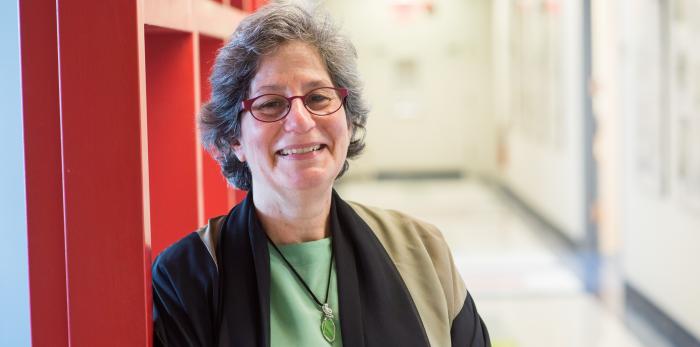Featured Stories, MIT, MIT EAPS, News | January 19, 2018
Susan Solomon Awarded the 2018 Crafoord Prize
Professor of atmospheric chemistry honored for her contributions to atmospheric science.

Susan Solomon, the Lee and Geraldine Martin Professor of Environmental Studies at MIT, has been awarded the 2018 Crafoord Prize.
Announced today, Solomon is being honored “for fundamental contributions to understanding the role of atmospheric trace gases in Earth’s climate system.”
Crafoord Prize in Geosciences 2018 – video credit: www.crafoordprize.se
For more than 30 years, Susan Solomon’s studies have been at the absolute forefront of research into the ozone layer and its role in the Earth’s climate system, with the chemical reactions she proposed now one of the cornerstones of stratospheric chemical modeling.
Now, together with fellow legendary climate scientist Syukuro Manabe of Princeton University, who has also played a dominant role in climate research over multiple decades, Solomon is being rewarded with Sweden’s Crafoord Prize in Geosciences 2018, worth six million kronor, for contributing decisive knowledge to aid in combating one of the greatest challenges of our time.
Solomon is internationally recognized as a leader in atmospheric science, particularly for her insights in explaining the cause of the Antarctic ozone “hole”.
In the 1980s Solomon solved the puzzle of the Antarctic ozone hole’s appearance, using theoretical and chemical measurement-focused studies in the Antarctic atmosphere. She examined the ice crystals in the stratospheric clouds that form there every year due to the extreme cold. These ice crystals cause the initiation of chemical processes that differ from those that were previously assumed to occur. On this basis, Solomon presented a theory that explained the link between manmade CFC emissions and the chemical processes taking place in the Antarctic stratosphere in the early spring, ones that led to the extensive depletion of its ozone layer. Her theory was verified by the results of the measurements conducted in the stratosphere. Later, Solomon showed how the thickness of the ozone layer in the southern hemisphere affects atmospheric flows and temperatures all the way down to ground level.
Subsequently, she and her colleagues have made multiple important contributions to understanding chemistry/climate coupling, including leading research on the irreversibility of global warming linked to anthropogenic carbon dioxide emissions, and on the influence of the ozone hole on the climate of the southern hemisphere. Her current focus is on issues relating to both atmospheric chemistry and climate change.
The Crafoord Prize is awarded in partnership between the Royal Swedish Academy of Sciences and the Crafoord Foundation, with the Academy responsible for selecting the Crafoord Laureates.
The disciplines encompassed by the prize, which change every year, are mathematics and astronomy, geosciences, biosciences and polyarthritis (e.g. rheumatoid arthritis), and were chosen to complement those of the Nobel Prizes.
Professor Solomon will travel to Sweden to give her Prize Lecture at Lund University on May 22, and receive her prize at the Royal Swedish Academy of Sciences on 24 May 2018, in the presence of H. M. King Carl XVI Gustaf and H. M. Queen Silvia of Sweden.
Former EAPS professor Edward N. Lorenz (together with Henry Stommel) received the first Crafoord Prize in Geoscience in 1983. Former EAPS geosciences professor Peter Molnar was awarded the prize in 2014.



